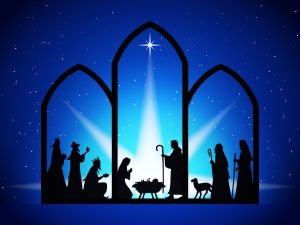Communion is something most Christians participate in at various times. When we talk about receiving communion, what are we really saying?
The dictionary gives two definitions for this word:
1. The service of Christian worship at which bread and wine are shared which some call a sacrament.
2. The sharing or exchanging of intimate thoughts and feelings, especially when the exchange is on a mental or spiritual level.
Regarding the first definition, churches serve this sacrament weekly, monthly, or at other scheduled times. It is a time when, typically, unleavened bread wafers and wine (or grape juice) are served to parishioners. While there is no specific requirement for the bread to be unleavened, many take it as a requirement because when this command was first given by Christ, it was during a Passover seder (i.e., dinner) which would only have unleavened bread served for this feast celebration.
Some churches have a designated person provide the bread and wine to each person of their congregation individually one at a time while other churches distribute it to the congregation for them to take it individually but usually taken together simultaneously.
Different congregations call this act of taking this bread and wine (or grape juice) by different names. By some, it is called The Lord's Supper because Christ instituted his command to his disciples to continue this practice during a Passover meal just before his crucifixion (1Co 14:24-25). The apostle Paul referred to it as the Lord’s table (1Co 10:21) and cup of blessing (1Co 10:16). The early Church also referred to this act as breaking of bread (Ac 2:42). It has become to be known as the eucharist by some Christian churches because it means the giving of thanks as Christ gave thanks to God prior to him and his disciples partaking of both the bread and the wine (Mt 26:26-27).
Over time, other requirements have been added to this act of communion. The Roman Catholic church requires one to not have committed mortal sin since their last confession. This is a sin that encompasses three elements: an act that is a grave matter, done with full knowledge, and with deliberate consent. The person must also believe in transubstantiation, a belief that the bread and wine are transformed into the actual body, blood, soul, and divinity of Christ, and only the appearances of bread and wine remain. This became a requirement based upon the church’s interpretation of Paul stating that one must not participate in communion in “an unworthy manner” (1Co 11:27-18).
Also, a person must have had only water for an hour before their participation in receiving the bread and wine. In addition, one must be in good standing with the Catholic Church to participate, and it is administered by an ordained priest. The Orthodox Church says that fasting is required before receiving the bread and wine so that they are hungry for God. There are even requirements for how the participant should behave as they receive the bread and the wine: instructions for what to do with one’s hands, how to drink the wine ensuring not a single drop spills to the floor, wipe one’s mouth with only the Communion cloth, not to chew gum while participating, etc. A review of these can be found here (What is Communion? It's Meaning and Symbolism Explained | Bible Study Tools). All of these requirements were made because of their belief in transubstantiation. Because of this belief, all aspects of the bread and wine are holy, being a part of Christ himself, and should not be taken or treated lightly.
Protestant churches are much more diverse in how communion is shared. Some, use actual wine and communal cups and receive communion from church leaders, perhaps kneeling at the altar. Others stick to grape juice and pass the elements to the congregation or allow congregation members to approach tables and serve themselves. This stems from a greater focus on an individual’s direct interaction with God, rather than a person approaching the communion through the mediation of a priest or pastor. Many Protestant congregations practice “open communion,” in which anyone who is a believer may partake in communion. In addition, Protestants do not typically believe in transubstantiation due to what is stated in Hebrews in that Christ served as a sacrifice for our sins once for all (Hb 7:27) and by believing the bread and wine become the actual body and blood of Christ would mean he is being sacrificed repeatedly. Also, as we will see in our next post, the idea of communion was instituted long before Christ gave this command to his disciples, so it was about maintaining a relationship with God more so than the participation in the act itself. Participation becomes the testimony that you have a relationship with Jesus Christ and look forward to his return.
Regarding the second definition above, we don’t always focus on it but perhaps we really should. I think this is what God actually intended. Not to focus on one definition or the other, but on both.
While the idea of the first definition is what we do today, the idea of the second definition was started way back in the Old Testament. It actually goes all the way back to Abraham.
Join me next time as we look at this aspect of communion.
____________
Visit Books & Words to Inspire by Randy C. Dockens



















